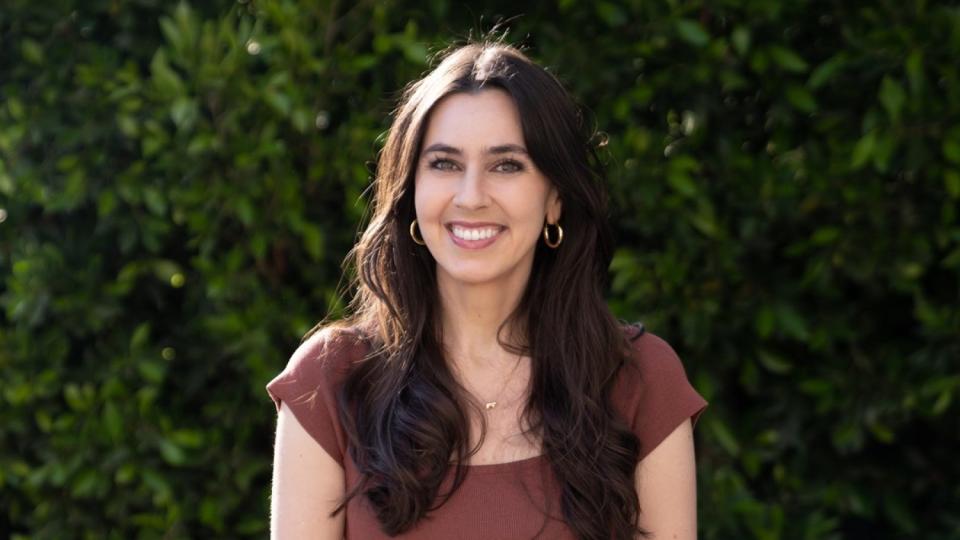Taylor Lorenz told the history of the internet. What does she think about its future?
In Taylor Lorenz’s book Extremely Online: The Untold Story of Fame, Influence, and Power on the Internet, the mega-rich tech entrepreneurs who launched the most popular social media platforms haven’t shaped the online world as we know it. That credit belongs to the creators.
Lorenz, a tech columnist at the Washington Post, has spent years chronicling online culture, from the rise and fall of popular creators to the trends that speak to human nature.

Her book reads like a history of the internet, following the inception of the blogosphere to the rise of Facebook and YouTube, the implosion of Vine and the total takeover of TikTok. But time and time again, Lorenz highlights how creators pushed social media platforms to accommodate them, protect them, pay them and sustain them.
It was the rise of the late Heather Armstrong’s monetized mommy blog that made self-published writing a sustainable career, and Julia Allison’s personal brand that introduced the world to the model of influencer we know today.
Through Lorenz’s book, it’s clear that there’s a pattern — creators become popular on a platform, they figure out how to make money on it, and the platform adapts to keep them around in a way that gets them both money and attention.
A “symbiotic relationship” that’s changing
Lorenz told In The Know by Yahoo that content creators and tech platforms have a “symbiotic relationship” — they need each other to function. But right now, that’s changing.
“Tech platforms have sought to seize control over creators and move toward more algorithmic feeds where no one creator is able to dominate the site,” she said. “That’s why, with TikTok for instance, everything is so focused on discovery [through the For You page] that there’s less of an emphasis on following people.”
Lorenz described the current creator landscape as a “battlefield” and said it’s difficult for any one creator to hold attention and keep their careers afloat. Of all the platforms, YouTube has the most robust creator partnership program and ad revenue model, but only the biggest creators benefit from that.
“For the foreseeable future, creators will need to continue to evolve along with the ever-changing landscape of features and platforms if they want to stay relevant,” she said.
That means trying out new features and experimenting with new methods of delivering content, whether it’s pivoting from photos to videos, making videos longer, trying out new photo filters or just playing around with posting time. It also means leaning into the ways platforms monetize creator content, like the residual payments that come from longstanding YouTube videos or the paychecks from posting a certain amount in partner programs.
Diversifying is key
Creators of all kinds may come and go, but, according to Lorenz, they’ll always exist. The ones that figure out how to diversify their revenue streams — like Jake Paul with branded merchandise, Alix Earle with her podcast and MrBeast with a restaurant chain — are the ones most likely to generate additional income and avoid burnout from one platform.
Perhaps one of the most groundbreaking assertions Lorenz makes in her book is that creators need to be taken seriously by the tech companies that distribute their content as integral to their business plans. Influencers aren’t just kids taking selfies and doing outrageous pranks for attention. They have the moneymaking capacity to change how social media platforms are run.
“Influencers are basically mini independent media companies,” she told In The Know. “I think that when we think of what the future of culture and entertainment looks like, it will look a lot like the influencer world.”
Lorenz might not be able to predict the exact platforms and people who will be shaping the internet in years to come, but she knows creators will command power over their followers. It’s up to tech companies, and to us as audience members, to figure out how we’ll respond.
In The Know by Yahoo is now available on Apple News — follow us here!
The post Taylor Lorenz told the history of the internet. What does she think about its future? appeared first on In The Know.
More from In The Know:
How TikTok has changed the way fashion trends work
Here is your guide to the latest buzzwords, trends, creators and memes
Jack Harlow's 'ABG' lyric in new '3D' single causes debate on TikTok
What is 'cloutbombing'? Here's how to spot it
How you can tell if someone is Gen Z or Millennial from their group photos


